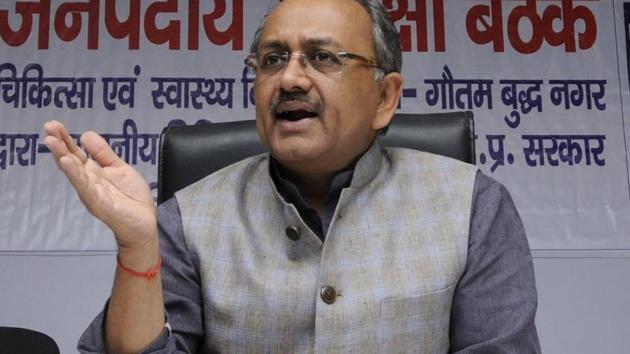Our labour reforms help create more jobs in UP: Sidharth Nath Singh
Major labour reforms have been undertaken, which allow exemptions from several labour laws for a thousand days for both the existing as well as newer companies that want to set up base in UP, says UP minister Sidharth Nath Singh.
A minister in the Uttar Pradesh cabinet with the charge of several departments, including MSMEs, investment promotion, textile, and khadi and village industries, Sidharth Nath Singh spoke to Smriti Kak Ramachandran about migrants returning to the state, changes in labour laws, the MSME sector, and investments. Edited excepts:

UP has the highest number of MSMEs, and they are the worse hit from the lockdown. What is the state doing for the sector?
The MSMEs mostly want help on the credit side; a lot of steps have been taken by the state to ease things. We have waived off fixed electricity charges and are billing them only for what is being consumed. Major labour reforms have been undertaken, which allow exemptions from several labour laws for a thousand days for both the existing as well as newer companies that want to set up base in UP. We are working closely with state-level banking committees to see ensure they can get what the RBI said -- 10% extra loan on the basis of their working capital.
You mentioned labour reforms, but there is a lot of criticism about making changes in the laws at this time. Won’t these make workers more vulnerable to jobs losses?
I can’t understand the criticism, because it helps create more jobs in UP. Our migrant labourers are coming back from other states, so we need to create more jobs. The jobs can only come in if the industries come in. All the clauses related to minimum wages, the number of hours, safety and security measures, are intact; clauses related to child labour and bonded labour will be applicable as they were before. What was redundant, unnecessary and not required, what added to red-tapism and corruption and allowed labour inspector raj, has been taken away. And, we will ensure safety and security for the labourers.
There are hundreds of thousands of workers returning to UP. Is that a cause of concern, because you have to offer them jobs and take care of their medical and other needs?
Whenever we looked at creating an industrial ecosystem, we found we never had trained or semi-skilled labour. For so many years, workers were known to work outside UP. Now with so many of them returning, we have an opportunity to go for a skilling programme. Now we have skilled and semi-skilled labourers who can be deployed in many sectors provided we give them a job opportunity. It is an opportunity, not a matter of worry.
You’ve been holding meetings with investors. Which are the sectors that are likely to attract them?
The CM formed a task force to look into attracting investments coming in, particularly from China. Apart from me, the task force has senior bureaucrats, and we have taken the professional services of Ernst & Young. We looked at two levels of competition, first at the domestic level between states; and the second from South-East Asian countries such as Malaysia, Thailand and Vietnam.
We looked at various aspects -- incentives, cost of wages, production -- and improved our existing policies. The sectors that we focused on are pharmaceuticals, food processing, medical devices, electronics and automobiles. The reforms will soon be approved by the state cabinet.






